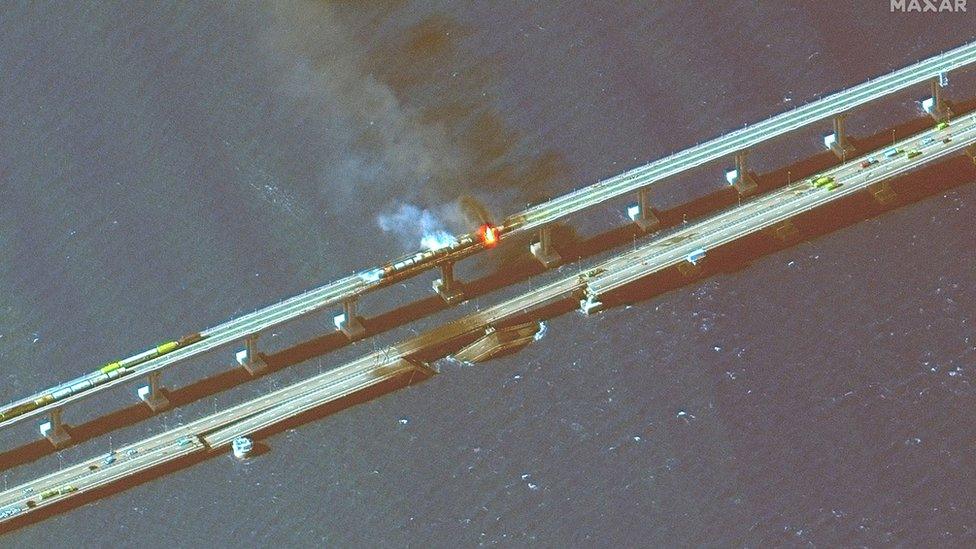Ukraine war: Grain deal continues despite Russia pull-out
- Published
- comments
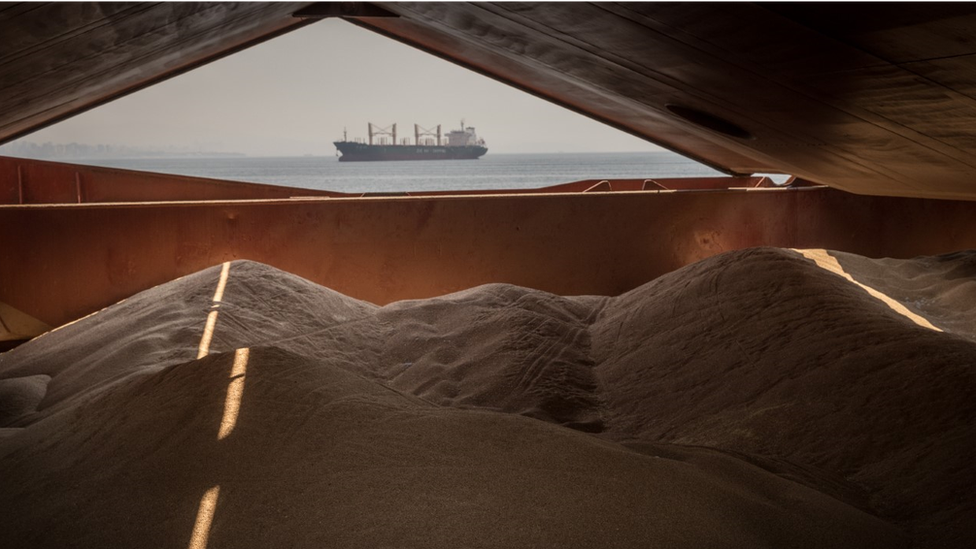
Grain ships - seen in this file photo - travel in a narrow corridor in the Black Sea's north-western sector
Three more vessels left Ukrainian ports on Tuesday, the UN-led centre co-ordinating the Black Sea grain export deal said, despite a Russian decision to suspend its backing of the scheme.
The centre said the ships' movement had been agreed by Ukraine, Turkey and the UN, while Russia "has been informed".
On Monday, 12 ships carrying 354,500 tonnes of food sailed from Ukraine.
Russia halted its backing for the deal on Saturday, accusing Ukraine of using a safety corridor to attack its fleet.
The UN says there were no ships inside the corridor that night.
Ukraine has not claimed responsibility for the attack in Crimea - Ukraine's southern peninsula annexed by Russia in 2014.
Ukrainian President Volodymyr Zelensky has accused Russia of "blackmailing the world with hunger" - a claim Russia denies.
In a phone call with his Turkish counterpart, Russian President Vladimir Putin said he would only consider resuming the grain deal after an investigation into the Crimea attack had been completed.
Turkey, Ukraine and the UN have agreed there will be no movement of ships on Wednesday.
Monday's cargoes constituted a record daily volume of exports since the grain deal began, said a spokesperson for Odesa's military administration quoted by Reuters.
One of the vessels carrying 40,000 tonnes of grain was destined for Ethiopia, where "the real possibility of mass starvation" existed, the ministry added.
After Russia invaded Ukraine in February, its navy imposed a blockade on Ukraine's Black Sea ports, trapping about 20 million tonnes of grain meant for export inside the country, along with other foodstuffs such as maize and sunflower oil.
But in July a deal between Ukraine and Russia was brokered by Turkey and the UN, facilitating a resumption of grain exports through the Black Sea ports.
On Monday, however, President Putin said the deal was being suspended, citing the "massive" drone attack on its fleet in the port of Sevastopol that he alleged Kyiv was responsible for.
He said maritime safety must be ensured and that implementing grain exports under such conditions was too risky.
"Ukraine must guarantee that there will be no threats to civilian vessels," Mr Putin said in a televised address.
Kyiv has not admitted responsibility for the attack, saying Moscow had long planned to abandon the internationally-brokered deal and used the attack as a pretext to do so.
"In conditions when Russia is talking about the impossibility of guaranteeing the safety of shipping in these areas, such a deal is hardly feasible, and it takes on a different character - much more risky, dangerous and unguaranteed," Kremlin spokesman Dmitry Peskov said.
Russia's withdrawal from the deal has been condemned by the US, who said Moscow was "weaponising food".
The EU's foreign policy chief, Josep Borrell, has urged Russia to reverse its decision, saying jeopardising the export of grain and fertilisers would impact the global food crisis.
The Russian ambassador to the US has rejected accusations that his country is exacerbating a global food crisis, saying it was unfair to criticise Russia.
The suspension comes as Russia says it has expanded its evacuations of the occupied Kherson region, despite stating over the weekend that these had come to an end.
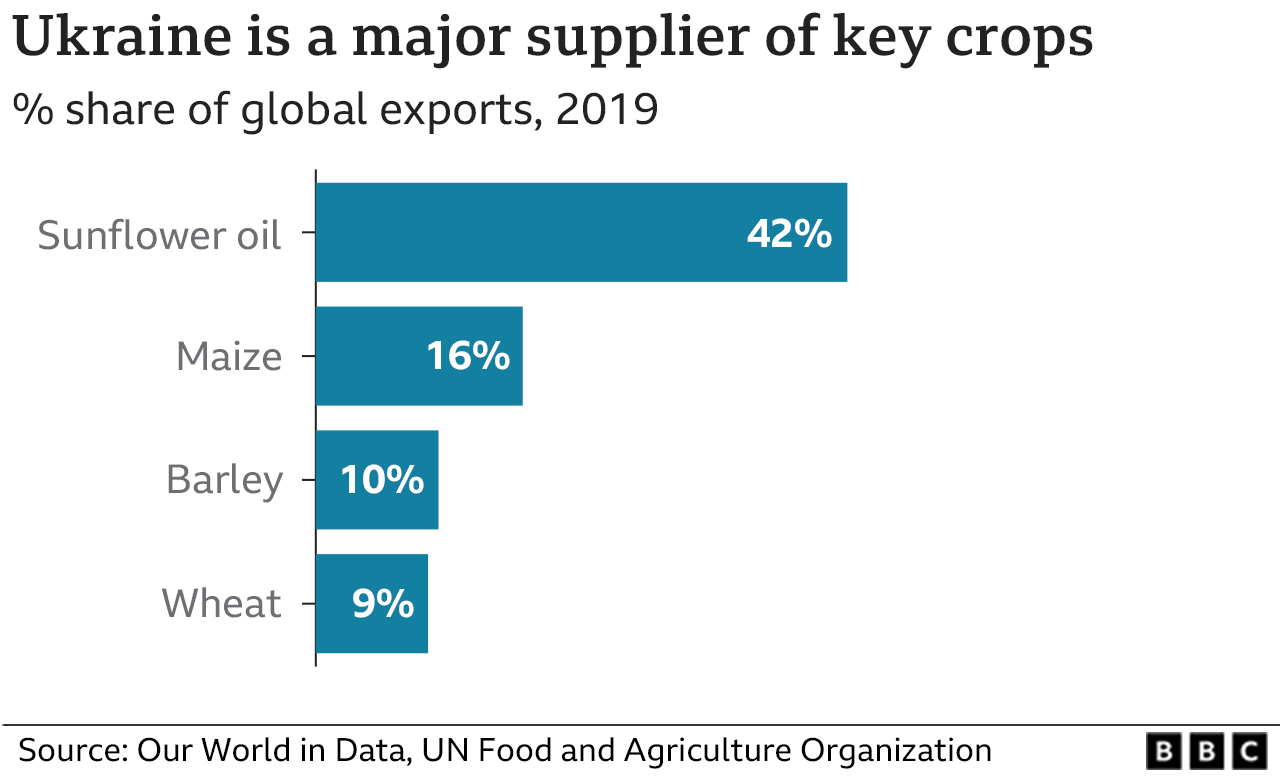
- Published2 April 2024
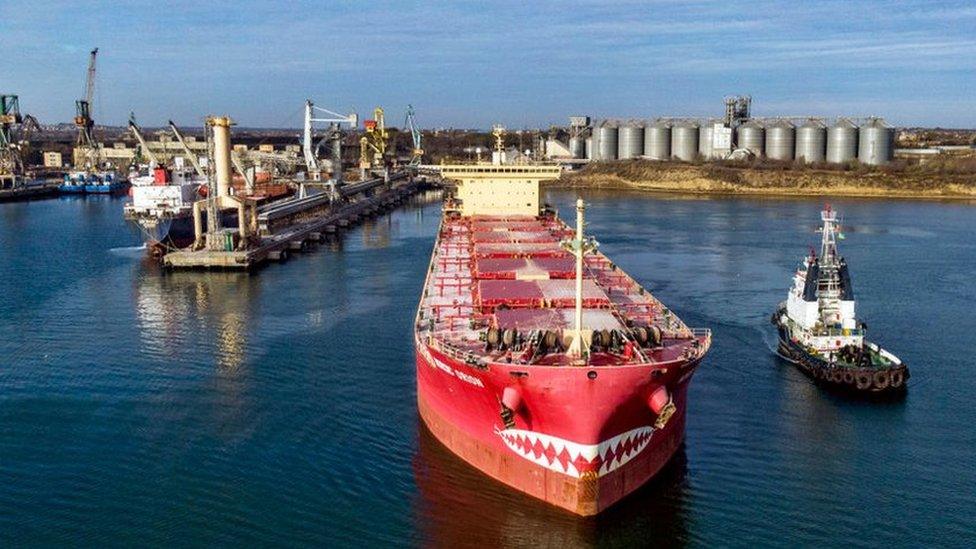
- Published29 October 2022
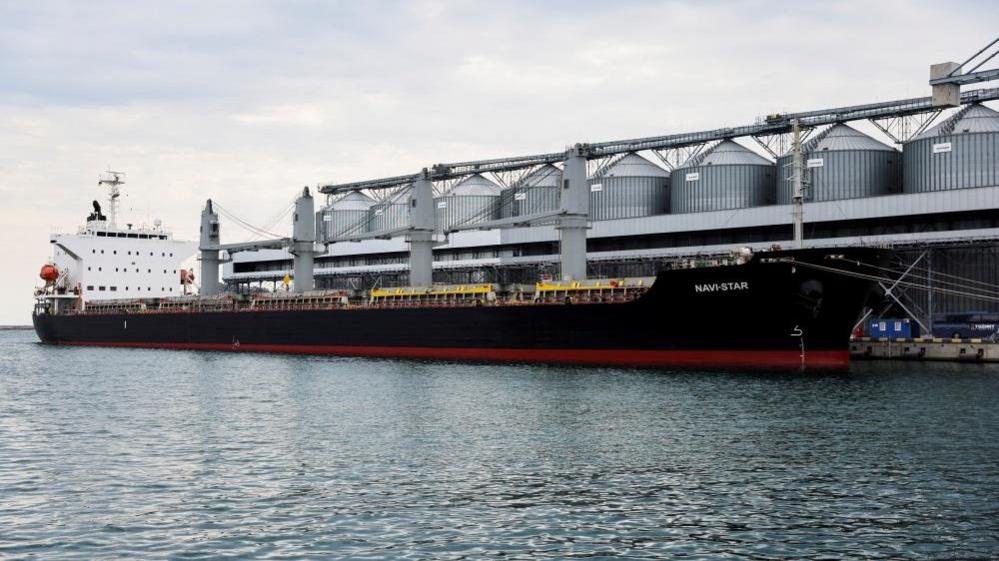
- Published31 October 2022
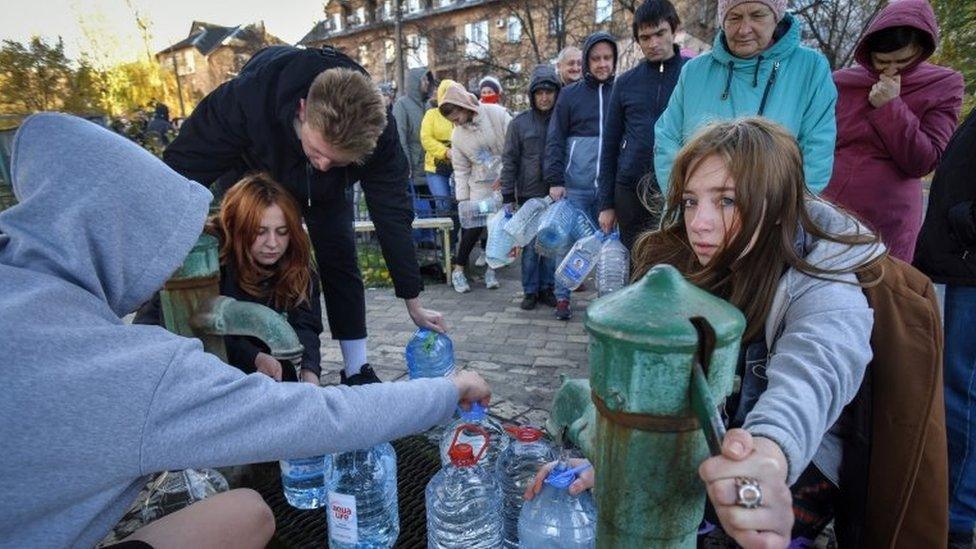
- Published10 October 2022
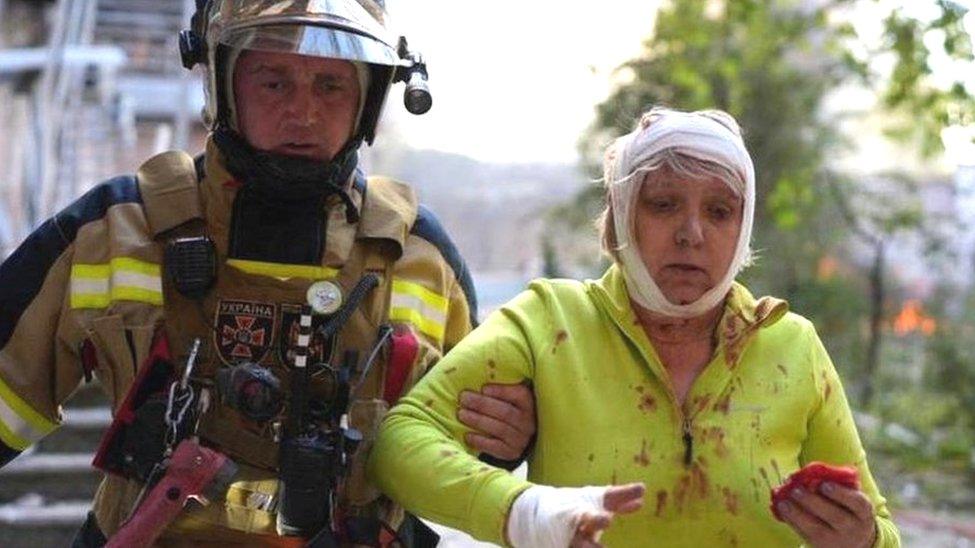
- Published19 August 2022
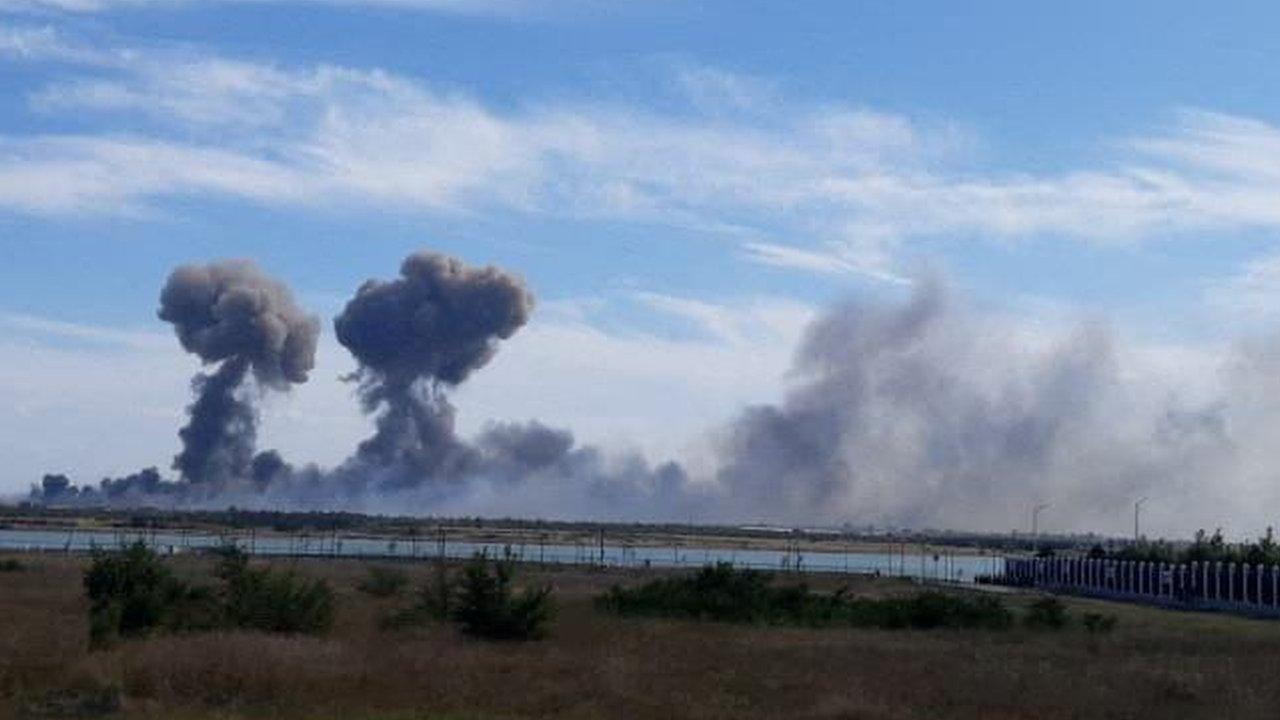
- Published9 October 2022
